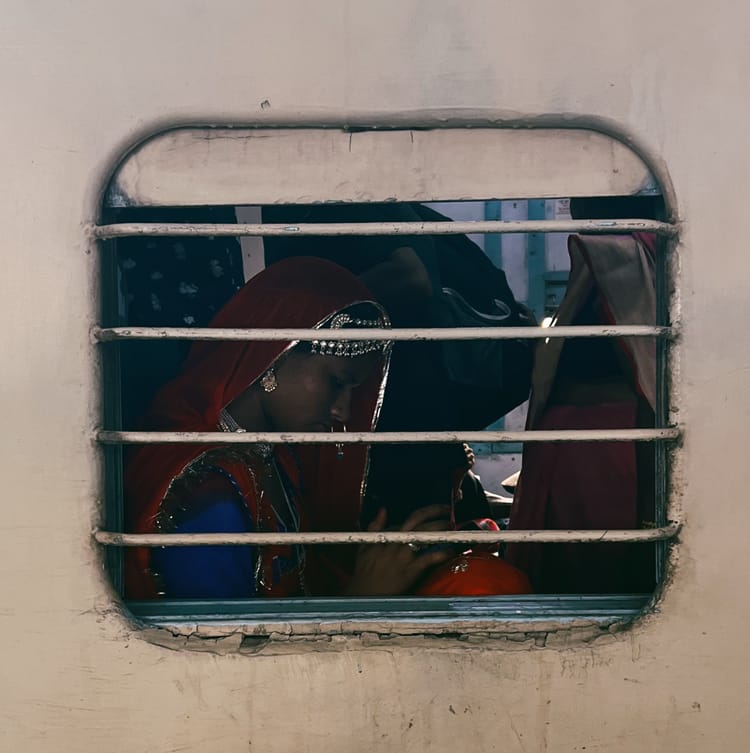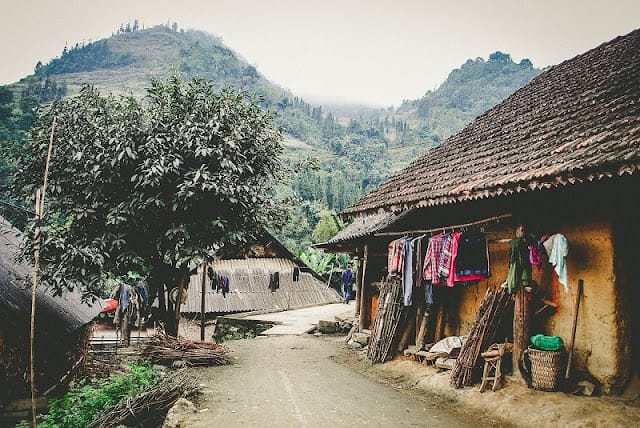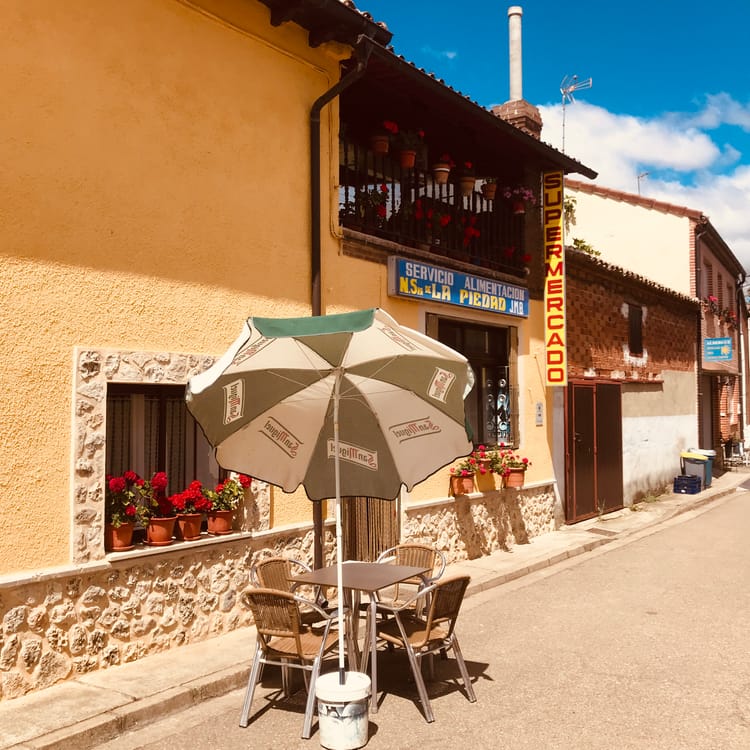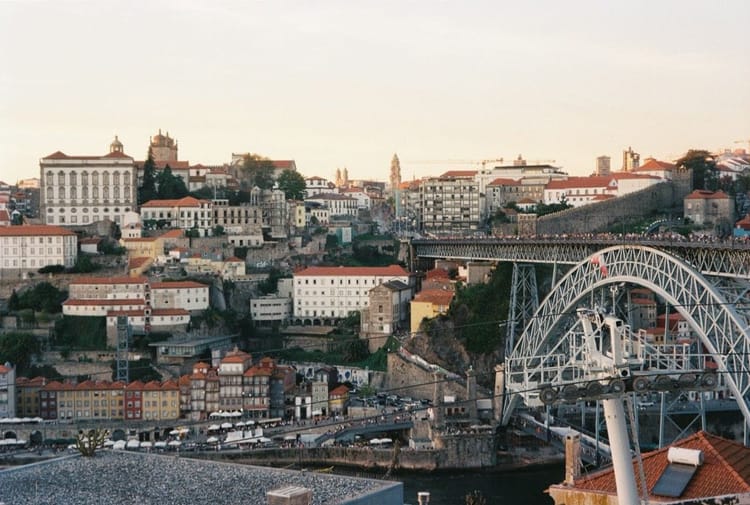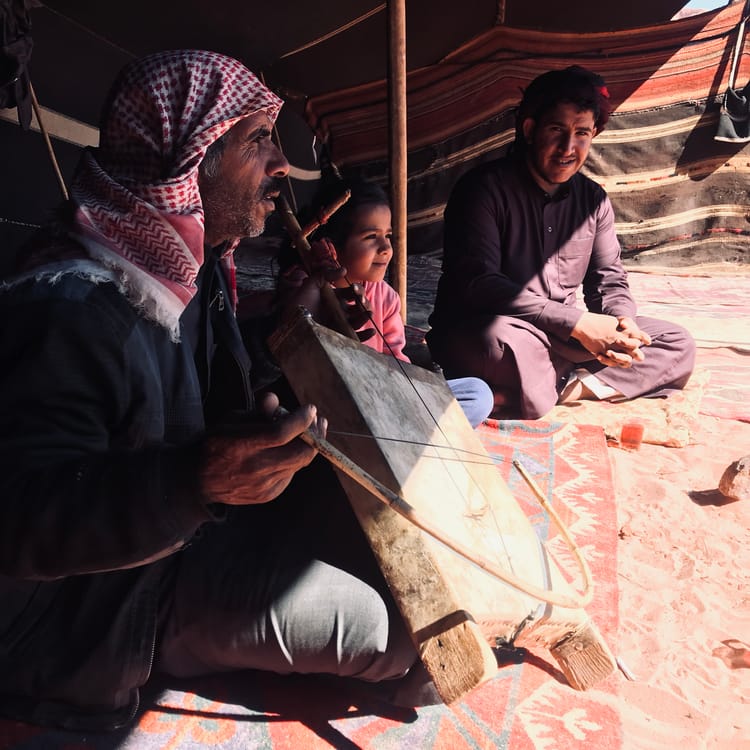Night Train to Yerevan

I was shaken awake by a dark grey blur and slow, deep voices. As my eyes opened, a tattooed rosary was momentarily revealed under the bleak, stale uniform. He stood next to two soldiers, each clutching an M16 slung around their broad, thick shoulders.
"Passport."
A command, not a question.
I rummaged through my bag and handed him my Italian Passport sleepily, realizing the train had stopped and was almost empty.
He flicked through the pages monotonously, grunting as he handed it to another equally emotionless soldier.
"Up."
I grabbed my bag and followed.
Reaching the open train door, it dawned on me that this wasn't Yerevan.
I scanned the scene while the first soldier beckoned me to a row of grey shipping containers parallel to the train. Save for the white lights menacingly perched atop the containers, we were engulfed by darkness.
The softness of the falling sleet juxtaposed the harshness of the situation. I reflected on the geometry of snowflakes, the infinity of iterations of 3s, 6s, and 9s falling all around us; Tesla was on to something when he espoused the universal secret to be found in energy, frequency, and vibration.
I wondered if these military men had ever contemplated such things in the silent moments patrolling this remote outpost or if their loyalty to the war machine had extinguished any lateral thinking faculties long ago.
I followed silently, mind racing as I watched the butt of another soldier's rifle sway menacingly with each stride. We stopped at the last container, where a small window exposed a drab holding room bereft of furniture but for a small desk, a fridge, and a worn, dog-eared calendar where a Baltic woman with fake breasts and caked in blue eye shadow glared down at me feverishly.
The door opened, and a large, weary figure in a dark blue uniform slumped into the chair by the window, his receding grey hair glimmering like quicksilver under the harsh light.
He assessed me, eyes lingering on the gold hoop earring.
"Why you here?"
A reasonable question.
I'd wondered the same myself as I'd left Tbilisi earlier that evening. I was there because it seemed the next "right move" from Georgia. Because I'd thrown the I-Ching six times at a cafe the day before.
"I'm to see your beautiful country."
They doubled down on their stares, visibly suspicious at such a generic answer.
"Visa," the man behind the window growled. Another demand.
I searched my pockets for a folded printout and passed it through the window, watching the train in the periphery, terrified I'd hear the wheels start to move at any moment.
"The train?" I asked.
"Train leaves when we say." He said matter of factly in broken English, unfolding my papers with calloused, translucent hands, scanning them intently.
"Job?"
"I'm an editor."
"A what?"
"A writer."
His eyes flickered. "A writer. You write what?"
It was only a matter of time. I'd been warned about lying in dictatorial countries by an Iranian friend before entering Tehran: Don't lie to them, Tom; if they search your laptop and find writing, they'll throw you in a cell without a second thought.
Her words ricocheted around in my memory like a pinball.
I thought of the least offensive subject someone could write about—food, gardening, architecture, children's books.
In the wake of the advice, I settled for the truth.
"Poetry."
He glared at me, slowly flicking through the passport pages in silence, eyes returning to me with the turn of each page. I shifted my weight nervously as the train groaned.
"Poetry," he repeated, glancing at the soldiers behind me whose eyes were burning a wormhole through the back of my skull.
There was a long, exaggerated silence, perforated only by his hoarse, rhythmic breaths, the product of years of harsh, cold nights smoking cheap cigarettes on the job.
Suddenly, as if he'd just grasped the punch line of a delayed joke, he erupted with laughter, and the other soldiers dutifully joined him.
I laughed too, half from nervousness, half from the situation's absurdity.
A wandering poet alone at the edge of Armenia, standing in the snow between two machine guns. In itself, there was poetry to it.
We fell into another uncomfortably long silence.
"Do you drink"? He asked, as seriously as he had the other questions.
"Too much" I replied, smiling.
He reached under the table, brandishing a transparent, labelless glass bottle, poured it into a plastic cup, and handed it through the window.
"Kenajd (Կէնաձդ)." He exclaimed, seemingly adopting an entirely new persona. There was a momentary softness in his eyes.
I took one deep shot. Moonshine.
It swirled down my throat like lava, and I winced.
"Welcome to Armenia, Rumi." He laughed, stamping my passport.
"Back on the train."

